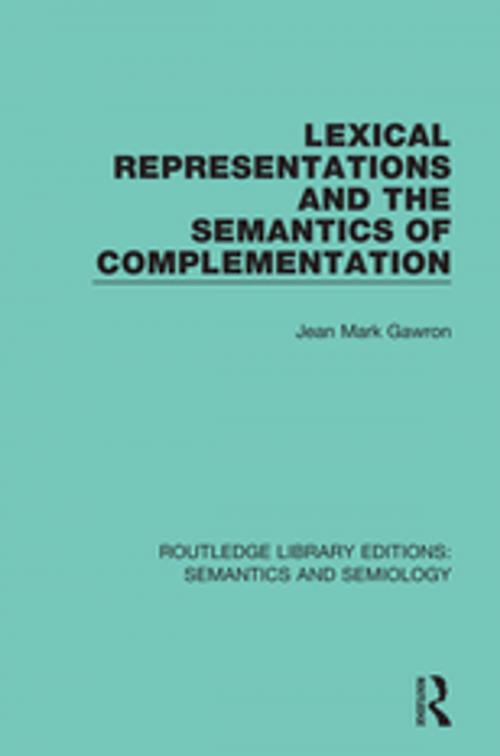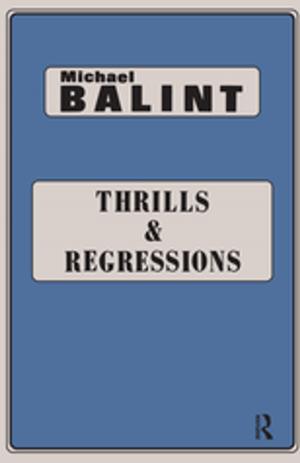Lexical Representations and the Semantics of Complementation
Nonfiction, Reference & Language, Language Arts, Grammar, Linguistics| Author: | Jean Mark Gawron | ISBN: | 9781315527314 |
| Publisher: | Taylor and Francis | Publication: | November 18, 2016 |
| Imprint: | Routledge | Language: | English |
| Author: | Jean Mark Gawron |
| ISBN: | 9781315527314 |
| Publisher: | Taylor and Francis |
| Publication: | November 18, 2016 |
| Imprint: | Routledge |
| Language: | English |
First published in 1983, this book represents an effort to lay the groundwork for a general approach to lexical semantics that pays heed to the needs of a theory of discourse interpretation, a theory of compositional semantics, and a theory of lexical rules. The first chapter proposes a basic framework in which to undertake lexical description and a lexical semantic analogue to the classical syntactic distinction between subcategorized for complement and adjunct. This apparatus for lexical description is expanded in the second chapter. A theory of the semantics of nuclear terms along with a proposed implementation is presented in chapter three. The fourth chapter argues that a number of regular, semantically governed valence alternations could be captured in frame representations that give rise to various kinds of realisation options. The final chapter examines interaction of these phenomena with a general account of prediction or control along with the general framework of lexical representation.
First published in 1983, this book represents an effort to lay the groundwork for a general approach to lexical semantics that pays heed to the needs of a theory of discourse interpretation, a theory of compositional semantics, and a theory of lexical rules. The first chapter proposes a basic framework in which to undertake lexical description and a lexical semantic analogue to the classical syntactic distinction between subcategorized for complement and adjunct. This apparatus for lexical description is expanded in the second chapter. A theory of the semantics of nuclear terms along with a proposed implementation is presented in chapter three. The fourth chapter argues that a number of regular, semantically governed valence alternations could be captured in frame representations that give rise to various kinds of realisation options. The final chapter examines interaction of these phenomena with a general account of prediction or control along with the general framework of lexical representation.















